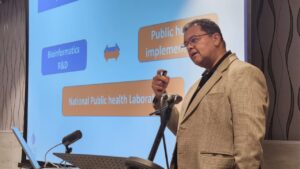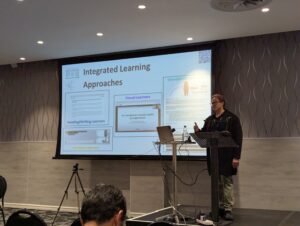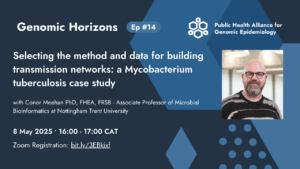The Reference, Quality Check and Validation Working Group is focused on the more operational side of deploying sequencing for routine public health activity. Within public health laboratories, concepts that do not exist to the same extent in research – such as accreditation, validation and auditable quality management programmes – are critical for providing a consistent high-quality service. Wet lab processes associated with sequencing (such as the act of preparing samples for sequencing) translate very well in existing public health laboratory practice. In comparison, the bioinformatics elements that are critical for the use of the sequencing data represent a new area for many public health settings, and the best practice around how one accredits and provides assurance for these elements remains to be codified.

This Working Group has been established to support the collation, dissemination and, where required, creation of best practice and advice relating to bioinformatics in public health laboratories. Specifically, the Working Group areas of work include reference and benchmark datasets; wet/dry lab protocol standardization, automation and auditing; application test sets; documentation standards for sequencing and bioinformatic workflows; resource validation; and regulatory.
Short term deliverables are outlined below.
- Draft consensus recommendations on sample-to-answer best practices for reference, quality check and validation in regulated testing environments.
- Identify consensus recommendations on key issues relating to quality management and assurance in public health laboratory settings:
- How to improve open source software pipelines for accredited use
- How to approach result and resource versioning, auditability, hashing of results and essential components, “reconstitutability”/reproducibility of the versioned workflow.
- What are sensible considerations, thresholds and approaches for validation/revalidation of bioinformatic workflows?
- Strategies for the modularisation of wetlab and bioinformatic protocols to facilitate quality assurance management and revalidation
- Proficiency testing and assessment of operator competency.
- Selection of appropriate internal and external controls.
- Establish community guidelines and organised resources, including reference implementations with unit tests, shared resources for continuous integration, development standards and conventions and reference datasets for pipeline validation.
- Existing standardised validation datasets should be indexed and referenced in a single, searchable location.
This Working Group has been slightly slower to start than others, as it was recognised that at present the working group includes a list of interested participants that disproportionately come from higher income countries. Ahead of our first meeting we would like to ensure that stakeholders from low-to-middle income countries (LMICs) are properly represented. Therefore, we would like to encourage interested colleagues from LMICs to get in touch via our website so we can ensure that they are part of the Working Group.
Clearly the focus of the working group being on the laboratory and service side is going to have implications during a pandemic, however, we hope that the first meeting of the full working group will be able to take place within a month. Following this, there is an intention of a meeting taking place every two weeks, first to refine and prioritise the focus for the working group, and then to collate, compare and contrast current practice prior to beginning to generate outputs.



